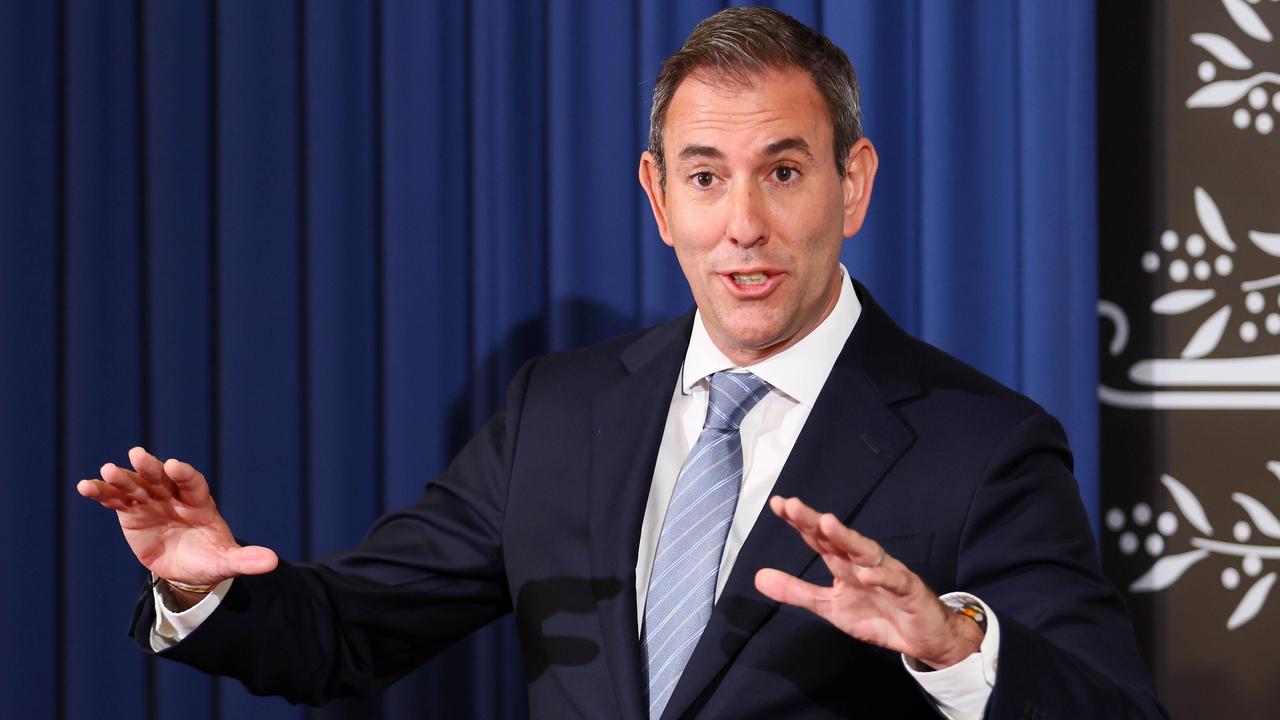Editor’s view: Why this budget shirks the hard work on reform
The treasurer has delivered a wishlist budget – heavy on feel-good Labor dreams and eschewing serious structural reform. Yet he shirks desperately needed reform in almost his next breath.

The genuine structural challenges facing Australia into the future are listed by Treasurer Jim Chalmers in his second budget speech – yet he shirks desperately needed reform in almost his next breath.
Beyond the immediate budget pressures, Dr Chalmers says, these structural challenges are defence, health, aged care, the NDIS and debt interest payments. But he then argues the “inescapable truth is that the federal government cannot put all the services that Australians expect and deserve on a more sustainable footing by ourselves”.
Dr Chalmers has, though, delivered a wishlist budget – heavy on feel-good Labor dreams and eschewing serious structural reform. There is a slim surplus worthy of an accounting error before returning to the deficits of the past 15 years.
Gross debt is forecast to balloon to more than $1 trillion by 2026-27 and net debt to $702.9bn – 24.1 per cent of GDP. Interest payments will equate to $700 per second for five years.
Funding the escalating NDIS costs, which Dr Chalmers obliquely vows to responsibly rein in, will be enormously tricky when coupled with a nuclear-powered submarine program costing up to $368bn.
The cost of health care is growing, with $3.5bn set aside to help GPs provide free consultations to 11.6m eligible people. An extraordinary $11.3bn is provided for the worthy and deserved 15 per cent increase in award wages for more than 250,000 aged care workers.
Dr Chalmers is right not to whip out the champagne to celebrate being back in the black – the wafer-thin, $4.2bn surplus could be overturned by an iron ore ship or two to China being delayed by weather.
This is a stark contrast to the reforming budgets of a generation ago – those produced in the Howard/Costello and Hawke/Keating eras. In those days, there was genuine courage required to return the budget to surplus in the aftermath of a recession, erase government debt or strike a prices and wages accord with unions to rein in inflation.
Just like it’s hard to have confidence in the surplus, even Treasury’s official forecasts acknowledge great uncertainty over the outlook for energy prices and inflation – two areas the budget is designed to douse. This continuing instability and uncertainty means there can be no confidence that dreams like “making Australia a renewable energy superpower” can be funded adequately. Then there’s the immense job of building a skilled workforce to build the nuclear-powered submarines in Adelaide.
These future challenges are stark but so is the present for people struggling to put food on the table – if they have a home – as living costs soar.
The energy bill rebate expected for about 420,000 SA households and 86,000 small businesses will bring welcome relief. The proportion of SA people and firms eligible does, however, indicate a sad indictment on the state economy’s long-term health.
This is further evidence of the scourge of inflation and the difficulty in bringing it under control – a key theme of Dr Chalmers’ budget.
With this in mind, it is reassuring that Labor has eschewed the big-spending tradition and limited annual real spending growth to 0.6 per cent over five years. Likewise, there are no tax rises or scrapping of the stage three tax cuts.
But reform is desperately needed to make Australia more productive, so we can grow the economy through enterprise and innovation rather than governments taxing and spending.
In the lead-up to the budget, Dr Chalmers tried to manage expectations by saying he couldn’t deliver everything he wanted. Instead, he’s had a go at delivering a Labor wishlist but squibbed the issue on long-term reform in the national interest.
More Coverage
Originally published as Editor’s view: Why this budget shirks the hard work on reform




